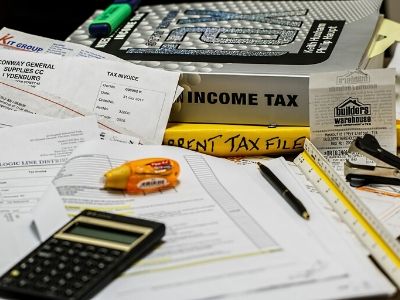Rates and Rules of Singapore Tax: How Does Personal Tax and Corporate Tax in Singapore Work?
 Singapore, as a city-state, has one of the lowest tax rates in the world. Additionally, the residents benefit from many incentives, all of which decrease the total amount of tax they file. Today, we discuss everything you need to know about two of the most common taxes: personal tax and corporate tax in Singapore.
Singapore, as a city-state, has one of the lowest tax rates in the world. Additionally, the residents benefit from many incentives, all of which decrease the total amount of tax they file. Today, we discuss everything you need to know about two of the most common taxes: personal tax and corporate tax in Singapore.
Personal Tax Singapore
First comes the personal tax in Singapore. Any individual who resides in Singapore and earns from a job or makes a profit from a business is liable for this tax. The tax rates depend on the income amount and the residency status of the person – on whether the individual is a citizen, permanent resident, or a foreigner.
Personal Tax Singapore for Residents
Singapore citizens, permanent residences and foreigners staying in Singapore for at least 183 days are taken as tax residents. The income tax rates are progressive – it starts from 2% for the first $30,000 income and can go up to 22% given that the person makes more than $320,000 in a year.
Personal Tax Rate in Singapore for Non-Residents
The employment income of non-residents is taxed at the flat rate of 15% or the progressive resident tax rates, whichever is the higher tax amount while other types of income are taxed at 22%. Foreign professionals deriving income in Singaporean soil will need to pay withholding tax either 15% of gross income or 22% of net income. Concession is available for public entertainers such as international music artists, where a reduced rate of 10% of their taxable income are withheld for tax.
For more information and the complete table containing the tax amount, click on this link: Tax Singapore.
Singapore Corporate Tax
The low corporate tax in Singapore is considered as one of the most critical factors for the influx of investors in the city-state. Thus, it has been contributing a lot to the growing economy.
The city-state has a single tier tax system since 2003, which means that companies only are liable for the tax they make in Singapore. Additionally, there are no capital gain taxes, and the dividends paid by a company to its shareholders don’t have any taxes on them.
Singapore Corporate Tax Rate
The corporate tax rate in Singapore is a flat 17%. Remember, this is just the ‘headline tax rate,’ and the real amount a company pays is generally lower. This is because of tax incentives and other depreciation rules.
Corporate Tax Rate in Singapore: General Incentives
There are two common general corporate incentives in Singapore- Tax Exemption Scheme for New Start-up Companies and Partial Tax Exemption for companies.
New Start-Up Companies Scheme
Companies which have been incorporated in Singapore for less than three years are eligible for this scheme.
The rates for the New Start-up Companies are as given in the below table
| Chargeable Income | Effective Tax Rate |
|---|---|
| First $100,000 | 4.25 % |
| Next $100,000 | 8.5% |
| After that | 17% |
These are the conditions for this exemption:
- The company should be incorporated in Singapore and should be tax resident in the city-state.
- The company cannot have more than 20 shareholders, and at least one individual shareholder holding 10% of the total shares.
Note: Companies whose principal activity is investment holding and one which undertakes property development cannot apply for this scheme.
Partial Tax Exemption
The partial tax exemption is for corporations which have been running for more than three years.
The rates of Partial Tax Exemption for Companies is as below:
| Chargeable Income | Effective Tax Rate |
|---|---|
| First $10,000 | 4.25 % |
| Next $190,000 | 8.5% |
| After that | 17% |
Well, we just gave you a guideline about the corporate tax in the city-state. For complete information about how you can apply for these exemptions, you can click on Singapore Corporate Tax.
Conclusion
Singapore is arguably one of the best places to live in and to run a business in the world. The tax in Singapore has a significant role in this. You can directly contact 3E Accounting if you still have more confusion.








